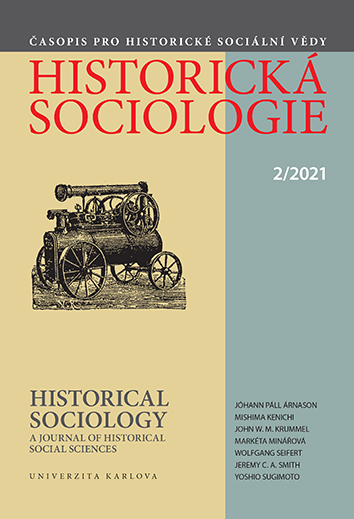Modern Japan and Multiple Modernities: A Case Study
Modern Japan and Multiple Modernities: A Case Study
Author(s): Mishima KenichiSubject(s): History, Social history
Published by: Univerzita Karlova v Praze, Nakladatelství Karolinum
Keywords: identity discourses; modernity; Japanese tradition; Nanbara Shigeru; Uchimura Kanzō; Katō Shūichi; ie society
Summary/Abstract: Transformation studies should be a key topic for the comparative analysis of civilizations. Their most important task is to deal with the changes to world-views and cultural semantics inherited from axial traditions, changes resulting from the emergence of modern society and its radically innovative normative turn. To put it another way, the question relates to modern discursive reworkings of path-dependent figures of thought. In the context of such processes, discourses on identity intertwine with more or less critically oriented discourses on culture and society. For non-European countries, and very emphatically for Japan, Northwestern Europe is an almost exclusive domain of reference, notwithstanding eventual condemnations of European “decadence” or – as the case may be – capitalist contradictions. But when some critical distance from Europe is achieved, it combines easily with returns to a supposedly primordial native legacy, even with the illusory belief that this legacy can inspire a transformative creation of something new in human history. Such intellectual phenomena occur, with significant variations, across a broad political spectrum. This essay discusses a few exemplary Japanese cases.
Journal: Historická sociologie
- Issue Year: 13/2021
- Issue No: 2
- Page Range: 67-81
- Page Count: 15
- Language: English

